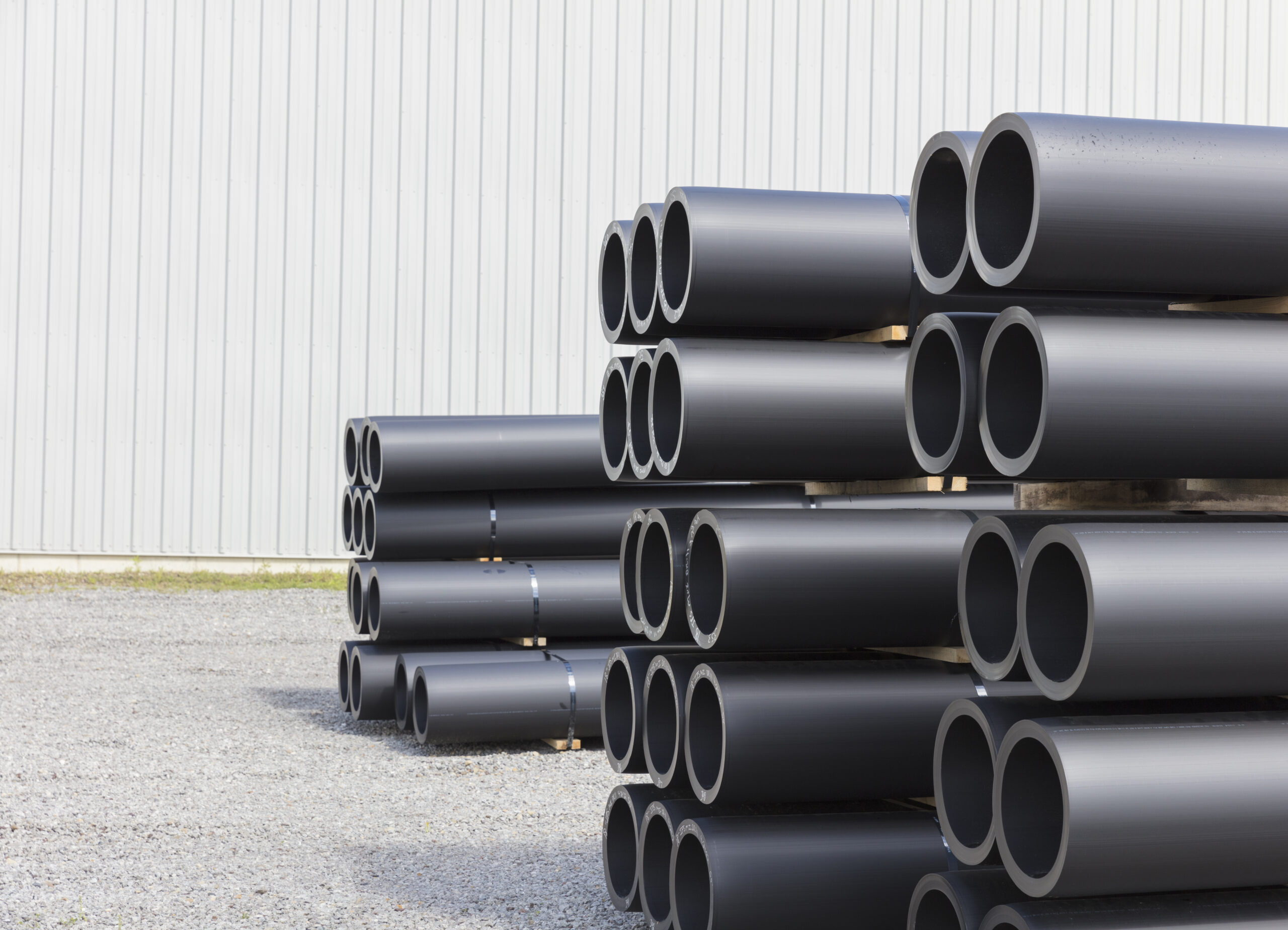American Plastics HDPE Pipe for Oilfield: Trusted by Engineers
Wiki Article
Recognizing the Secret Perks of HDPE Pipe for Water and Wastewater Management
Using HDPE pipe in water and wastewater management offers countless advantages that merit consideration. Its extraordinary resilience and long life expectancy make it a favored selection for several jobs. Additionally, the material's resistance to rust and chemical damage enhances its dependability in numerous settings. Nevertheless, the advantages prolong past just longevity and resistance. Discovering its cost-effectiveness and ecological impact reveals also more engaging factors for its widespread fostering in contemporary facilitiesOutstanding Toughness and Long Life

HDPE pipeline stands apart for its exceptional longevity and durability, making it a favored option in water administration systems. Created from high-density polyethylene, these pipelines can hold up against significant stress and anxiety, making sure reliable performance with time. Their robust nature allows them to endure extreme ecological problems, consisting of temperature level changes and dirt motions, which can trigger various other materials to fall short.
The lifespan of HDPE pipelines often exceeds half a century, giving a cost-effective option for municipalities and markets alike. In addition, the product's lightweight residential or commercial properties streamline installment, lowering labor costs and timeframes. This durability minimizes the requirement for regular repairs or replacements, better enhancing its economic appeal.
In water management applications, the reliability of HDPE pipes indicates less disruptions and enhanced solution connection, making them important to sustainable infrastructure growth. The mix of resilience and long life strengthens HDPE's duty as a foundation in reliable water management solutions.

Resistance to Deterioration and Chemical Damage
While several products yield to corrosion and chemical damages gradually, HDPE pipelines display amazing resistance, making them optimal for various water administration applications. This durability comes from the molecular framework of high-density polyethylene, which is naturally non-reactive and does not corrode like metals or deteriorate from direct exposure to rough chemicals. Therefore, HDPE is extremely reliable in settings with aggressive substances, such as wastewater systems that might have acids, bases, and organic solvents.
Furthermore, HDPE pipelines can withstand environmental aspects such as dirt acidity and saline conditions, even more boosting their suitability for diverse applications (custom hdpe pipe manufacturing Midland TX). Their capability to keep structural stability in time lowers the danger of leaks and failings, which is critical in guaranteeing the safety and dependability of water distribution and wastewater monitoring systems. Subsequently, the resistance to corrosion and chemical damage significantly adds to the overall effectiveness and durability of HDPE piping services
Cost-Effectiveness and Financial Benefits
When taking into consideration the financial ramifications of water monitoring systems, the cost-effectiveness of HDPE pipelines becomes apparent. These pipes use lower setup and maintenance expenses compared to typical products like metal or concrete. Their light-weight nature streamlines transport and setup, causing minimized labor expenses. In addition, HDPE pipelines exhibit a lengthy life-span, usually surpassing 50 years, which equates to fewer replacements and long-lasting financial savings.Furthermore, the resistance of HDPE to corrosion and chemical damages lessens the need for expensive repair services and substitutes. The pipes additionally support reliable water circulation, decreasing power prices related to pumping systems. By minimizing leaks and water loss, HDPE pipes add to significant financial benefits for towns and industries alike. In general, the first financial investment in HDPE piping can produce significant economic returns over the life expectancy of the water management system, making it a prudent selection for sustainable framework development.
Environmental Sustainability and Minimized Influence

Convenience and Flexibility in Installment
Due to their special homes, HDPE pipelines supply amazing adaptability and versatility in setup, making them suitable for a vast array of applications. Their light-weight nature enables much easier handling and transportation, reducing labor expenses and installment time. HDPE pipelines can be bent and shaped to fit various terrains and job demands, which is specifically valuable in challenging environments.Furthermore, their resistance to rust and chemical damage enables setup in diverse setups without the demand for specialized protective finishings. The capability to fuse joints creates a continual, leak-free system, improving the general stability and reliability of the installation. HDPE's versatility additionally read more fits ground activity, decreasing the risk of damages in locations prone to shifting soil. On the whole, these features make HDPE pipelines not just flexible but also a preferred selection for water and wastewater administration systems.
Often Asked Inquiries
Just How Does HDPE Pipe Contrast to PVC in Water Administration Applications?
HDPE pipe offers remarkable adaptability, resistance to rust, and toughness contrasted to PVC. Its lighter weight facilitates much easier installation, while its long lifespan lowers substitute expenses, making HDPE a favored selection in water management applications.What Is the Life-span of HDPE Water Lines Under Regular Conditions?
Under common problems, HDPE pipelines can have a life-span ranging from 50 to 100 years. Their durability and resistance to rust add to their long-term efficiency in numerous applications, making them a reliable option for framework.Are HDPE Water Lines Recyclable After Their Service Life?
Yes, HDPE pipes are recyclable after their solution life. hdpe pipe fittings Midland TX. They can be refined and repurposed into new products, substantially minimizing ecological impact and advertising sustainability within the industry, making them an environment-friendly selection for piping solutionsWhat Is the Installation Process for HDPE Pipeline?
The setup procedure for HDPE pipes entails site preparation, trenching, pipe fusion or mechanical joining, backfilling, and pressure testing. Appropriate techniques ensure a sturdy and reliable system for delivering water and wastewater properly.Can HDPE Pipeline Be Used for Both Drinkable and Non-Potable Water Systems?
Yes, HDPE pipelines can be made use of for both drinkable and non-potable water supply. Their flexibility, durability, and resistance to rust make them suitable for different applications, guaranteeing risk-free and effective transport of water in different contexts.Report this wiki page